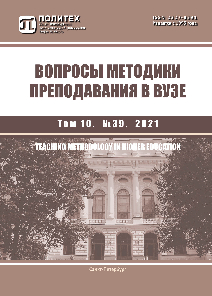Intercultural communication within the framework of tandem projects of international higher school cooperation
The work is devoted to the intercultural communication in the process of learning foreign languages in the modern information-educational environment. Cross-cultural issues of language learning are analyzed and their solutions are proposed. The research of the tandem projects effectiveness was conducted. The main methods of research are the analysis of the scientific literature in the field of foreign language teaching methodology, psychology and pedagogy, the study and generalization of the experience in teaching foreign languages in tandem groups, as well as the analysis of the students' educational activity products, teacher observation, questionnaires and interviews. The purpose of the tandem network is building virtual communication, aimed at the mastery of their native language tandem partner and building intercultural competence in the process of mutual learning with the help of new information and communication technologies. Article submissions are of practical importance for the foreign language teachers since they contain recommendations for conducting tandem projects and requirements for their participants.



